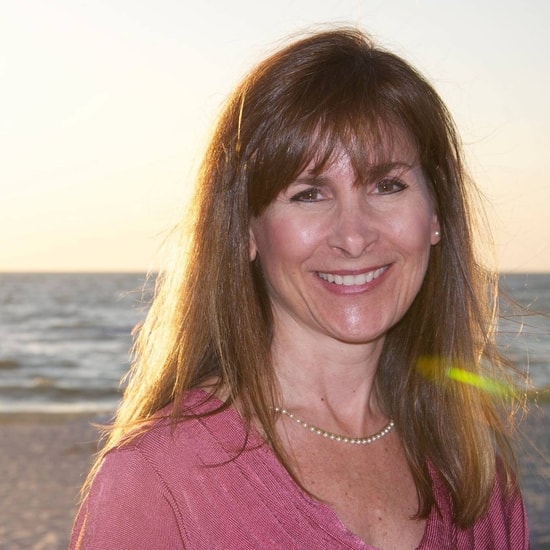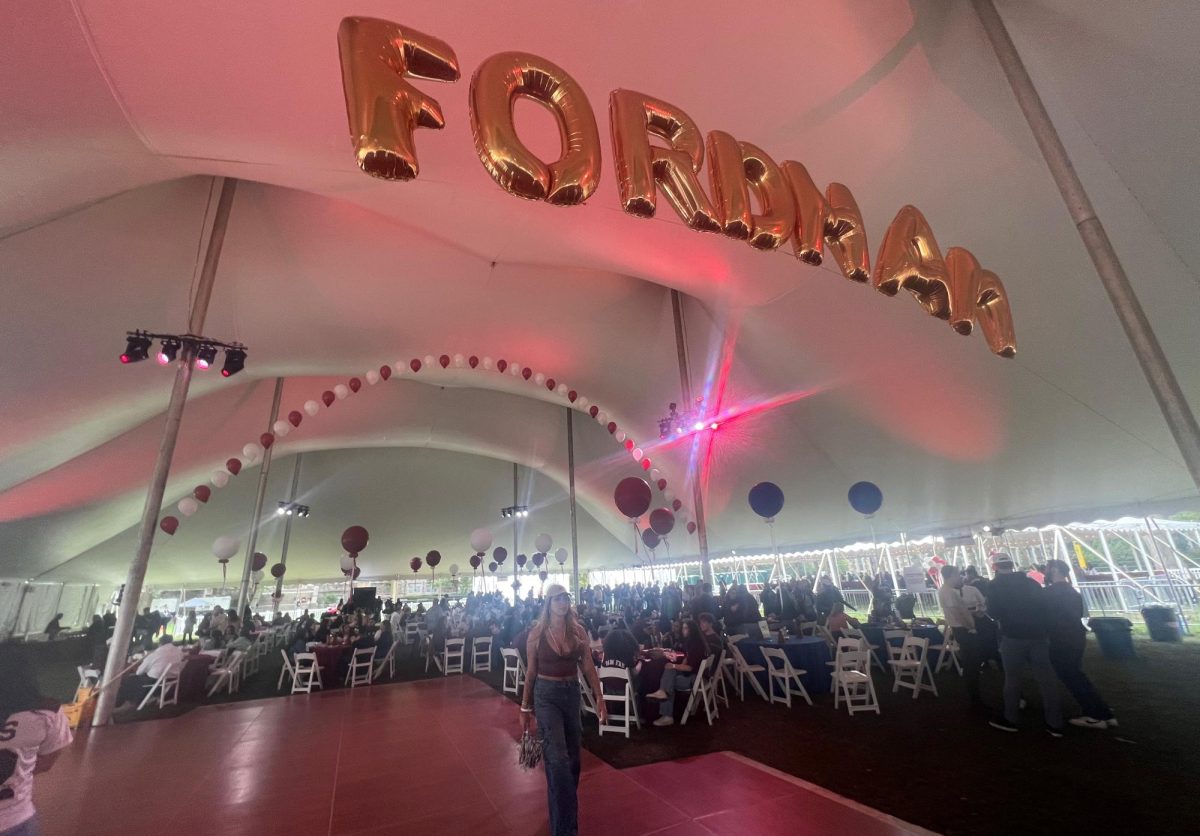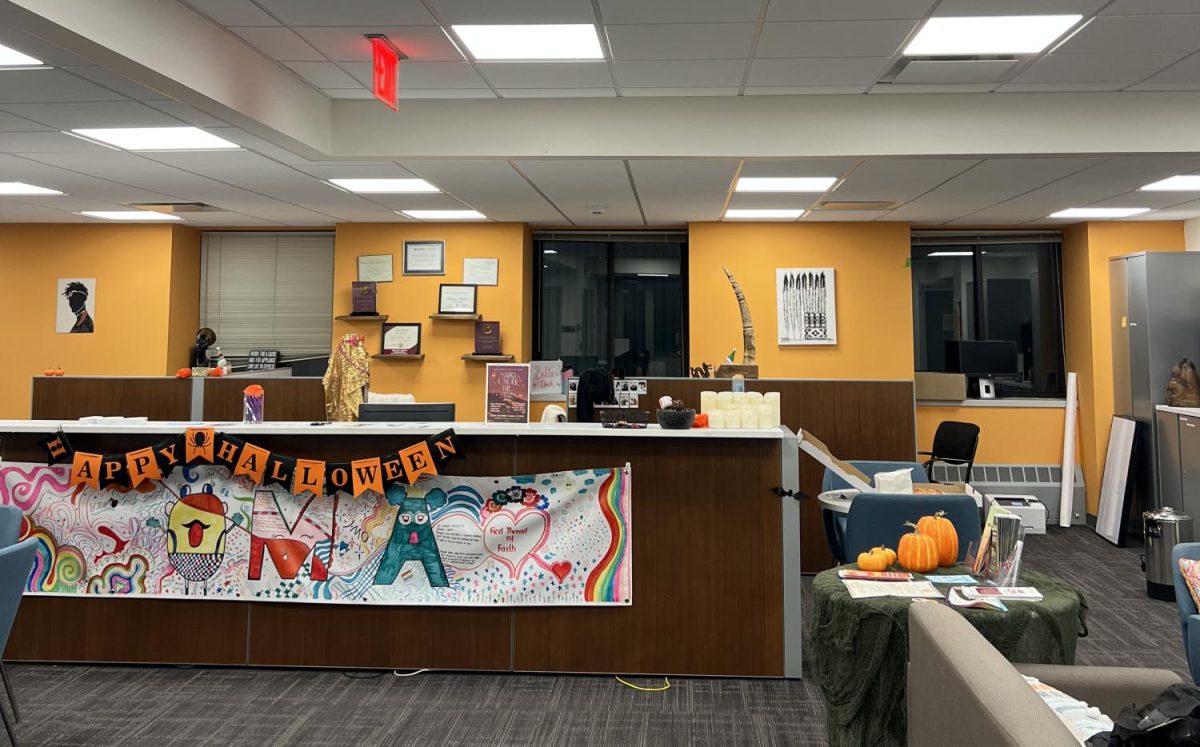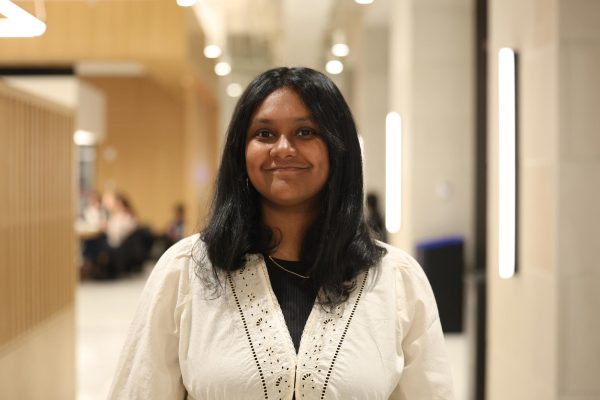Amy Tardif, a corps regional manager for Report for America, led a fact-checking workshop for students in the Public Media Master’s Program last Wednesday. At Report for America, Tardif helps mentor, train and guide emerging journalists into local newsrooms across the Northeast. She is also an independent fact-checker and has an extensive background in public radio at outlets such as NPR and WGCU.
As an independent fact-checker, Tardif has worked on podcasts including Pulitzer Prize winning “Suave” and Peabody Award winning “Believed.” When working on podcast scripts, Tardif goes in line by line on a document, making sure that claims can be defended or attributed to a reputable source.
“This is time consuming. I usually give myself eight hours for a 30-page script,” Tardif said.
When fact-checking, Tardif looks for the details one might expect, such as a person’s age and historical information. She also probes for correct word use, making sure claims flow logically and that professional terminology is employed correctly.
Tardif emphasized the importance of incorporating fact-checking into the reporting and editing process. She advised reporters to fact-check themselves and attribute sources correctly before filing their work with an editor or colleague for additional checking.
“It’s kind of funny to me to be saying you’re writing away. How do you know what you’re writing is true if you’re not checking as you go? That’s the main thing I’ve been telling my reporters at Report for America when they ask how to do this,” she said.
When it comes to sources, Tardif advised students to go right to primary source documents and to cross-check interviewees.
“One of the best questions you can ask a source is ‘How do you know that?’ Because hopefully then they’ll cite something for you,” Tardif said.
Tardif also advised students to develop a “spidey-sense” for inaccurate and unclear reporting.
“If you’re in a newsroom, this has got to be done really quickly. Your checking needs to be more of [a] spidey sense where you’re saying, ‘that just doesn’t sound right,’” she noted. “If it doesn’t make sense to you, it is not going to make sense to the audience. Anytime your hair goes up on your back and says ‘I don’t get that,’ don’t assume anyone else is going to get it. That is something you should check.”
For Tardif, popular concerns about news reliability reemphasized the importance of factual and accurate reporting.
“I first heard about it in 2018 when we, the [news] industry, were accused of fake news. It became all the more important to make sure that we were not and could not be accused of that just for making a mistake, a simple error by not checking,” said Tardiff.
When it comes to the reporters she oversees with Report for America, Tardif strongly advocates for individual fact-checking as part of the reporting process.
“I have 39 reporters right now in the Northeast, and I would say I am aware of two newsrooms that have fact-checking protocol,” said Tardif. “I am not aware that they’re all doing it.”
Local newsrooms, she noted, don’t often have the luxury of time that comes with the fact-checking process, making it all the more crucial for reporters to check as they write.
“A newsroom — they’ve got dailies, maybe they’ve got some enterprise going on in the background. They don’t have time for this — ‘oh it’s edited, now I’m going to spend a day checking it.’ You don’t have that luxury,” she said. “When I meet with people one on one, I’m telling them just make sure that what you’re putting [out], you’ve checked as best you can.”











































































































































































































